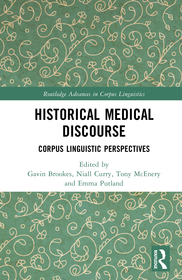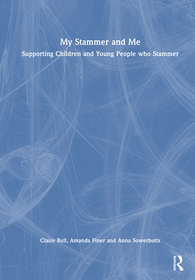
Investigating Unequal Englishes
Understanding, Researching and Analysing Inequalities of the Englishes of the World
Series: Routledge Studies in World Englishes;
- Publisher's listprice GBP 42.99
-
20 538 Ft (19 560 Ft + 5% VAT)
The price is estimated because at the time of ordering we do not know what conversion rates will apply to HUF / product currency when the book arrives. In case HUF is weaker, the price increases slightly, in case HUF is stronger, the price goes lower slightly.
- Discount 10% (cc. 2 054 Ft off)
- Discounted price 18 484 Ft (17 604 Ft + 5% VAT)
Subcribe now and take benefit of a favourable price.
Subscribe
20 538 Ft

Availability
Estimated delivery time: In stock at the publisher, but not at Prospero's office. Delivery time approx. 3-5 weeks.
Not in stock at Prospero.
Why don't you give exact delivery time?
Delivery time is estimated on our previous experiences. We give estimations only, because we order from outside Hungary, and the delivery time mainly depends on how quickly the publisher supplies the book. Faster or slower deliveries both happen, but we do our best to supply as quickly as possible.
Product details:
- Edition number 1
- Publisher Routledge
- Date of Publication 29 September 2025
- ISBN 9781032410241
- Binding Paperback
- No. of pages198 pages
- Size 234x156 mm
- Weight 370 g
- Language English
- Illustrations 16 Illustrations, black & white; 14 Halftones, black & white; 2 Line drawings, black & white; 3 Tables, black & white 699
Categories
Short description:
Ruanni Tupas presents rich insights into the inequalities of Englishes and the ways in which these inequalities shape and impact English and multilingual speakers from around the world.
MoreLong description:
Ruanni Tupas presents rich insights into the inequalities of Englishes and the ways in which these inequalities shape and impact English and multilingual speakers from around the world.
This edited volume gives a critical take on world Englishes, while showcasing for readers the various inequalities in treatment towards the people who speak English differently, as well as the injustice in that treatment. Research methodologies are explored, providing a glimpse into how data are collected and lending a more thorough look into each study and its conclusions. Chapters address the geopolitics of knowledge production in the teaching, learning and use of English, with strong representations from the peripheries of sociolinguistic studies of English. English is constructed as a language which enables socioeconomic mobility which is one factor that increases the importance of research into this issue, and this book enables researchers to widen their methods of research and apply them to their area of study.
A valuable text for academic researchers, as well as postgraduate and advanced undergraduate students, to better understand the linguistic, sociopolitical and epistemic inequality in English communication. It also provides readers with alternative perspectives on lingua-cultural pluralism to unpack social inequalities and hierarchies that exist today.
Investigating Unequal Englishes sheds light on the dominance of Anglocentrism and monolingual biases and ideologies, and hegemonic language policies and practices favouring the English language across the world. It highlights the questionable and hierarchical status, role, function, and use of Standard English and the perpetual linguistic inequalities and injustices faced by speakers of different varieties of Englishes. The edited volume rightly argues that only the critical and metalinguistic awareness of policy-makers, ELT administrators, teachers, students, and community members can make them sensitive to individual and collective marginalisation and disempowerment based on languages. Hence, the volume is a must-read for academics, researchers, and language practitioners, intending to initiate the process of decolonisation at grassroots levels, work for the de-eliticisation of English, and promote and nurture linguistic and epistemic equity in the world.
Shaila Sultana, University of Dhaka, Bangladesh
Joined by experts from around the world, Ruanni Tupas, the renowned scholar responsible for the concept of “Unequal Englishes,” explores the realities of hierarchical power structures among varieties of English in various contexts. This is a highly significant volume which investigates one of the most fundamental aspects of language in society, and thus should be read not only by researchers of World Englishes and critical applied linguistics but also by everyone involved in language education.
Nobuyuki Hino, Otemon Gakuin University and Osaka University, Japan
There are undoubtedly benefits to the global spread of English, most obviously in the facilitation of communication across different cultural contexts or increased access to varied opportunities. However, are such benefits evenly distributed? As Tupas and colleagues show, it is no longer possible to treat the inherent and emergent inequalities in Englishes as a problem facing only a minority of speakers and communities. It is indeed a globally pervasive problem, but this volume helps us to identify its underlying causes while imagining potential ways forward.
Jerry Won Lee University of California, Irvine, USA
Delving deeper into the lens of Unequal Englishes with new contexts and encompassing methodologies, this volume is essential reading for researchers of the growing social inequalities in the pluralization and localization of Global Englishes. A key text for new generations of critical applied/sociolinguists.
Virginia Zavala, Pontificia Universidad Católica del Perú, Peru
MoreTable of Contents:
Preface
(Re)framing Unequal Englishes: unequal personhood, deficit ideology and epistemic injustice
PREM PHYAK
PART 1: Experiencing unequal Englishes in everyday life
1 Memory work of a World Englishes (WE) advocate experiencing Unequal Englishes
ROBY MARLINA
2 ‘Deficient’ English and social inequality: ethnographic findings from two rural Bangladeshi madrasas
QUMRUL HASAN CHOWDHURY
3 Unequal Englishes and stancetaking in Michelle Chong’s parodic performances of Filipino domestic workers in Singapore
CHRISTIAN GO
PART 2: Constructing unequal Englishes in school
4 Constructing Unequal English-speakerhood in Chile: a narrative analysis perspective
MANUEL VÁSQUEZ, ANDRÉS GUTIÉRREZ, ROMMY ANABALÓN SCHAAF AND MARCO ESPINOZA
5 Unequal Englishes, native English speaker teachers, and social variables: an intersectional approach
JUNSHUAN LIU AND SONGQING LI
6 Students’ critical voices and (re)positioning toward “standard Englishes”
RIBUT WAHYUDI
PART 3: Unpacking unequal Englishes as ideology
7 ‘Half-native’ and cheap English teachers: Probing unequal Englishes through multimodal critical discourse analysis
JULIUS C. MARTINEZ
8 Unequal Englishes in multimodal texts: visibilizing opaque power relations through critical discourse analysis
JAYSON PARBA AND TOMOAKI MORIKAWA
9 Unequal Englishes through Chinglish: conflicting language ideologies in the official discourse
GUOWEN SHANG
PART 4: Centring Unequal Englishes in research
10 Unequal sounds: an inclusive mother-tongue approach to Philippine English phonology
ANNIE MAE C. BEROWA
11 Moroccan English through epistemological polylogue: opportunity for speaking back, hopes for localization, and the postcolonial framework
HAMZA R’BOUL, HASSAN BELHIAH, MOHAMMED GUAMGUAMI AND AHLAM LAMJAHDI
Way forward: Down to earth with Unequal Englishes
MARIO SARACENI
More

The Cybersecurity Game Master: From Role Playing Games to Tabletop Exercises that Engage and Inspire





